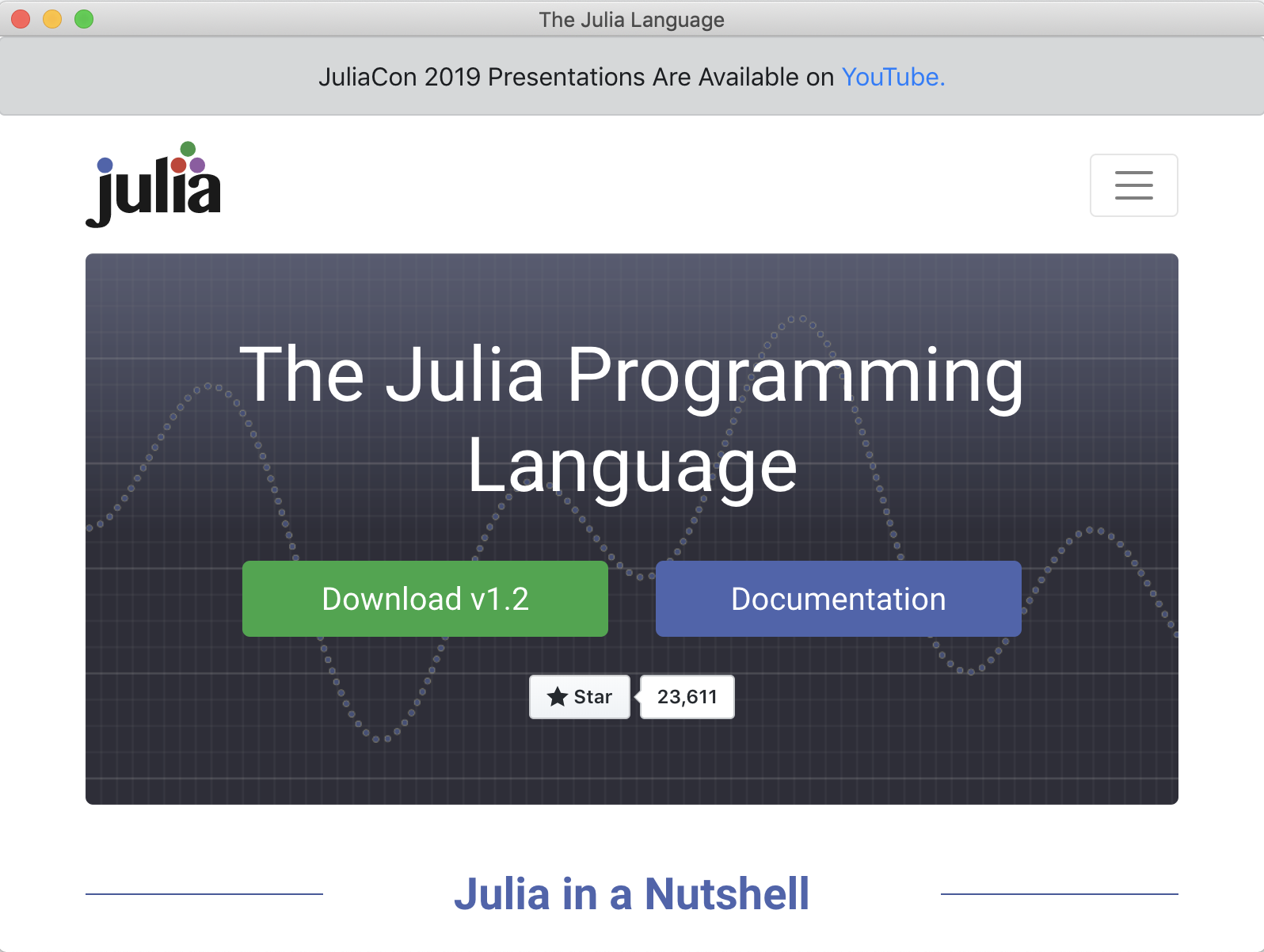Blink.jl is the Julia wrapper around Electron. It can serve HTML content in a local window, and allows for communication between Julia and the web page. In this way, therefore, Blink can be used as a GUI toolkit for building HTML-based applications for the desktop.
To install, do:
julia> # press ] to enter the Pkg REPL mode
(v1.3) pkg> add Blink
# ... Blink builds and downloads Electron ...
(v1.3) pkg> # press backspace to exit Pkg REPL mode
julia> using Blink- 7z on Windows and
unzipon Linux. You'll need to install the appropriate one for your system to be able to install Electron:- For Linux,
apt get install -y unzipor similar should work. - For Windows, we use the
7zthat is normally packaged with binary distributions of Julia (via the BinDeps.jl build dependency).7zmay be unavailable in case of a source build of Julia on Windows, in which case it can be obtained by runningmake win-extrasafter runningmake.
- For Linux,
julia> using Blink
julia> w = Window() # Open a new window
Blink.AtomShell.Window(...)
julia> body!(w, "Hello World") # Set the body content
julia> loadurl(w, "http://julialang.org") # Load a web pageFor options see the functions defined in window.jl, which closely follow electron's API.
You can also use the JS API to interact with the window. For example:
julia> @js w Math.log(10)
2.302585092994046If that's not convincing enough, open the console (Cmd-Alt-I on OS X) and evaluate:
@js w console.log("hello, web-scale world")-
On Windows, the spawned process dumps its output into Julia's STDOUT, which is kind of annoying.
-
When running on a headless linux instance (such as for CI tests), you must start julia via
xvfb-run julia. More information can be found in the electron docs here. See the Blink.jl .travis.yml file for an example.Otherwise you will see the following error:
│ LoadError: IOError: connect: connection refused (ECONNREFUSED)
These usually result from Electron failing to start. This is frequently a result of a misconfigured system (e.g., missing required shared libraries or not having a display server running).
To debug, make sure that the Electron process is able to start. The path to the electron executable depends on your environment, but you can obtain it easily:
print(Blink.AtomShell._electron)
# /Users/travis/.julia/packages/Blink/mwJC9/deps/Julia.app/Contents/MacOS/Julia
Running that executable from the command line (outside of Julia) should open an empty Electron window, or it should print out an error message.
For error messages of the form error while loading shared libraries: libasound.so.2, make sure you've installed that shared library using your system's package manager (e.g., apt install libasound2).
If you still can't solve your problems, please feel free to open a new issue.


